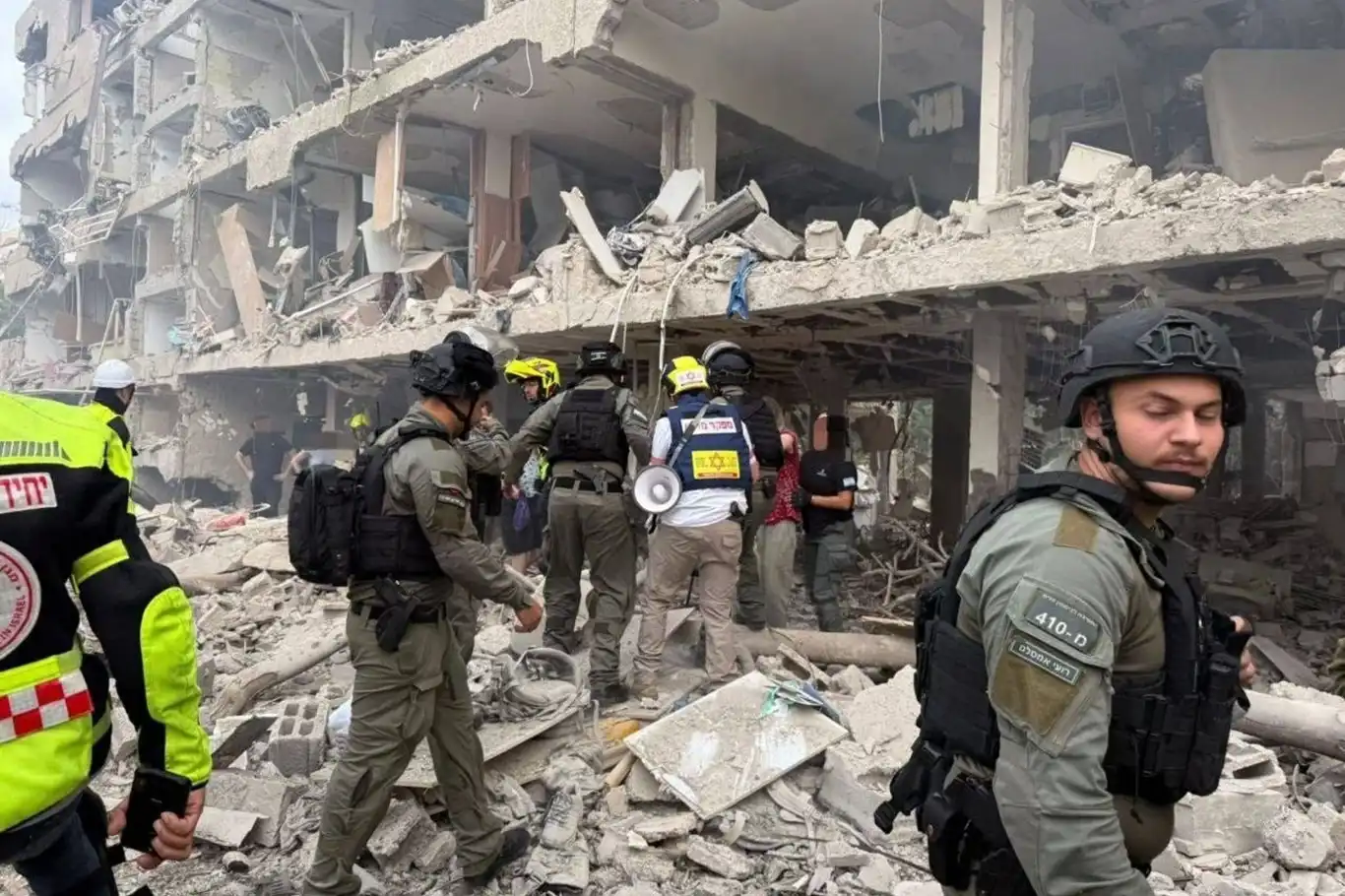Iran launches wave of missile strikes on occupied territories in retaliation for US-Israeli aggression


Iran launched a new wave of ballistic missile strikes targeting central and northern parts of the occupied territories on Sunday, marking the first Iranian response since the United States carried out airstrikes on several Iranian nuclear facilities at dawn the same day.
The retaliatory strikes, part of what Iran’s Islamic Revolution Guard Corps (IRGC) dubbed the 20th wave of “Operation True Promise 3”, struck multiple Israeli military and civilian targets, including critical infrastructure and research facilities. The Iranian military described the attack as a calculated and escalating response to what it called the "illegal and escalatory aggression" jointly carried out by the U.S. and the Israeli occupation.
According to Israeli military sources, approximately 30 ballistic missiles were fired in two salvos from Iranian territory, targeting the Gush Dan area and the north. Iranian state media reported that more than 10 key locations were struck, including Ben Gurion Airport, a biological research center, and logistical and command hubs used by the Israeli occupation forces.
Israeli media confirmed direct hits in Haifa, Tel Aviv, Ramla, Beer Yaakov, Ness Ziona, and Bat Yam, where one residential building caught fire following the impact. A missile strike in Haifa occurred without any siren activation, sparking outrage over what critics are calling a failure of the Israeli warning systems.
Despite orders from the Israeli military banning the publication of images from the strike zones, footage quickly circulated online, showing scenes of devastation and emergency response efforts.
Emergency medical sources, including Magen David Adom (MDA), reported that at least 30 settlers were injured in the strikes, with several in critical condition. Medical teams were deployed across all reported impact sites, particularly in Haifa and al-Jalil, where sirens were belatedly activated. Israeli authorities have urged residents in targeted areas to remain in shelters until further notice.
The IRGC released a detailed statement describing the latest offensive as a “strategic escalation,” highlighting the first-ever combat use of third-generation Kheibar-Shekan missiles—a sophisticated, multi-warhead ballistic system capable of bypassing air defense shields and striking with extreme precision.
IRGC spokesperson Major General Naeini stated that the latest wave involved 40 ballistic missiles, combining liquid and solid fuel systems, and equipped with maneuverable, terminal-guided warheads. The warheads, he said, were “designed to pierce fortified defenses and cause maximum destruction.”
“We adopted new and surprising tactics to achieve more precise, destructive, and effective strikes,” Naeini said, noting that sirens in many targeted areas sounded only after the missiles had already landed, disrupting coordination and spreading confusion within the occupation’s military ranks.
The IRGC emphasized that this was only a partial demonstration of Iran’s military capability. “The full strength of the Armed Forces of the Islamic Republic of Iran in this sacred defense has not yet been deployed,” the statement warned.
Sunday’s strikes come amid heightened regional tensions after U.S.-Israeli airstrikes targeted Fordow, Natanz, and Isfahan nuclear sites in Iran—a move Tehran has fiercely condemned as a violation of its sovereignty and an act of war.
As military units across both sides remain on high alert, and emergency crews work through the wreckage, observers warn that the region stands on the precipice of further escalation, with the potential for wider conflict if diplomatic off-ramps are not urgently pursued. (ILKHA)
LEGAL WARNING: All rights of the published news, photos and videos are reserved by İlke Haber Ajansı Basın Yayın San. Trade A.Ş. Under no circumstances can all or part of the news, photos and videos be used without a written contract or subscription.
The Tunisian contingent of the Global Sumud Flotilla, a multinational civilian mission aiming to break Israel’s blockade of Gaza, announced on Sunday that its departure has been postponed by three days due to technical and logistical difficulties.
At least 87 Palestinians were martyred and 409 others injured in the Gaza Strip over the past 24 hours as the Israeli occupation intensified its brutal bombardment, according to local medical sources.
Hospitals across the Gaza Strip confirmed on Sunday that five more Palestinians, including three children, have died within the past 24 hours from famine and severe malnutrition, as the Israeli blockade continues to strangle the besieged territory.
A 4.9-magnitude earthquake shook the Sındırgı district of Balıkesir province on Sunday afternoon, according to the Turkish Disaster and Emergency Management Authority (AFAD).